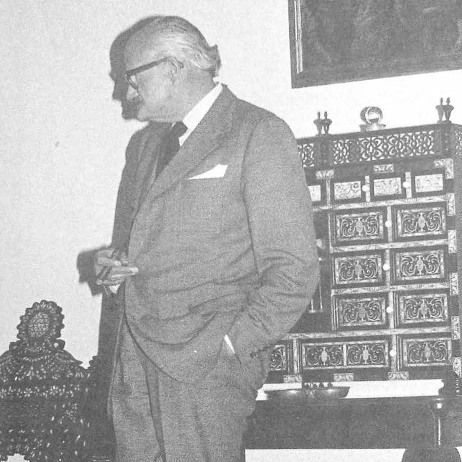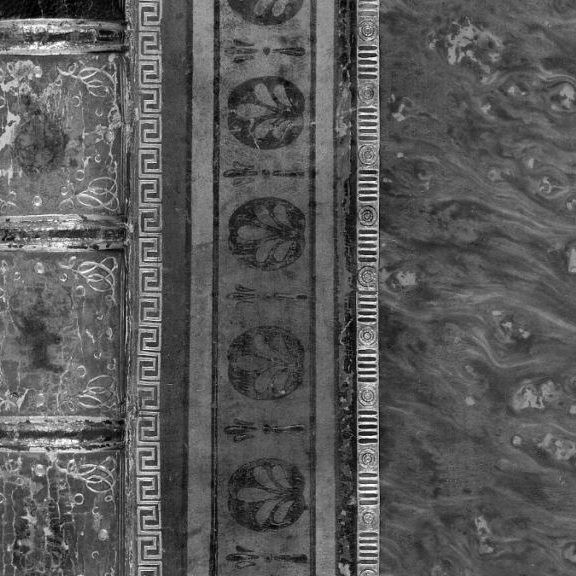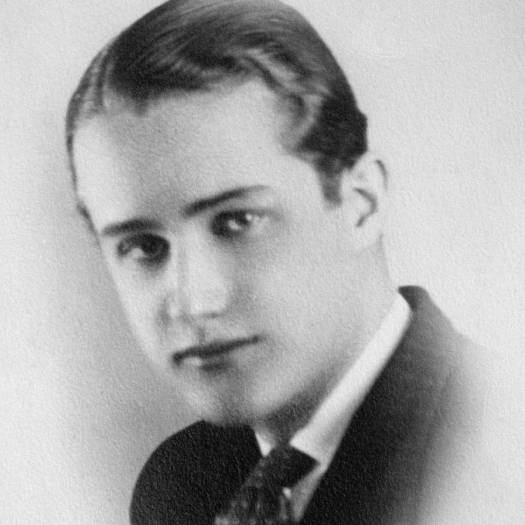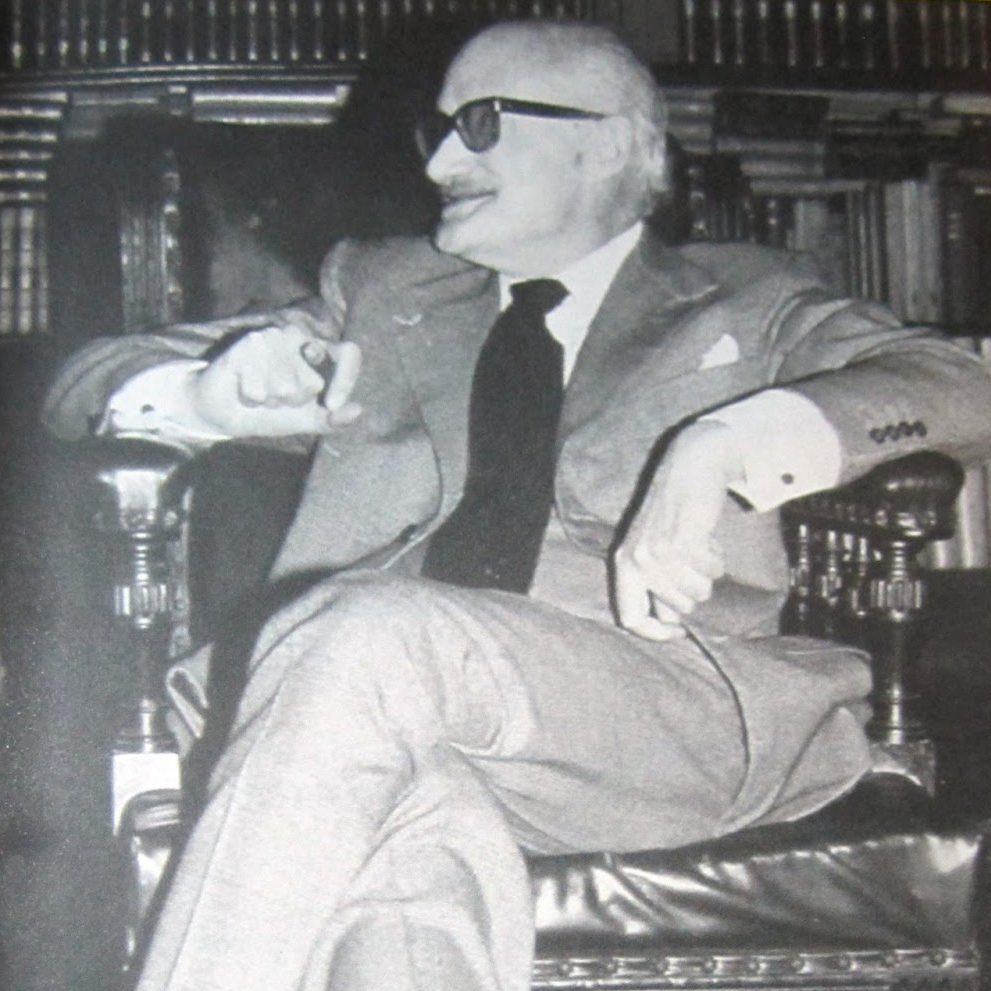See the list of topic categories here.
Force, physical force, brutal and crude, is the most common reality in history. Without a doubt, not the only reality; but nothing is more rare than the man who recognizes abstract demands, demands made of his intelligence or his sensitivity.
The modern world demands that we approve what it should not even dare ask that we tolerate.
Nothing seems less relevant to humanity during its drinking bouts than the truths it confesses once again when it recovers its judgment.
The importance of life does not impart value onto certain acts, but rather, the value of certain acts is what gives life its importance.
“Autonomous ethics” is a perfect example of the classic petulance of the middle class.
A life without principles and without rules, subject only to material needs, subjugated by only whims, is unworthy of a rational being and appropriate to the animal that remains ignorant of all reason. Even the one who does not discover any imperative to submit to, or any doctrine that can order his conduct, must endeavor to reduce the capricious influence of chaotic concepts on his actions.
Reason, truth, justice, tend not to be man’s goals, but the names he gives to his goals.
The arguments capable of convincing our contemporaries have a bad taste, bad smell, bad color.
Men end up motivated by the motives attributed to them. A beast if they say his soul dies with the souls of beasts; an animal with shame, at the very least, if they say he has an immortal soul.
Just as I am delighted by the fact that humbles our pride, I am heartened by the noble gesture that dispels my fear of our extreme depravity.
Victories worth winning do not need to be proclaimed by triumphal parade.
Man makes history, but he does not forge the values that govern it.
The need for ethics, that is, for a system of rules of action, appears later in an individual’s life. Oftentimes it does not even appear at all, and the person is content with a different principle for each action.
Vile is that man who is amused only by those things that, if they were to happen to him, would cause him harm.
We live as long as we believe we are fulfilling the promises we break.
Not all defeated men are decent, but all decent men end up being defeated.
When values perish, economic relations govern the social structure. The “free” man is a slave to profit.
What continues to protect man in our present time is his natural inconsistency. That is to say: his sudden and spontaneous horror before the consequences implicit in those principles he admires.
The efficacy of the individual, their utility and ability to serve: this is what satisfies the moral individualist, what he truly approves of. Nothing justifies a person but their usefulness; to be of no use, to be accused of social parasitism, is to be worthy of the worst moral sanctions, to social ostracism and even political execution.
The only thing that should worry us is what we do, even when the only thing that counts is what we are.
Since the late 1700s, there has been no innocent generation.
Even the least foolish usually do not comprehend the conditions of what they wish for and the consequences of what they allow.
In all men there are desires and disgusts, enthusiasms and hatreds, which are inspired by the different frameworks and histories of each life. This is how new values are born, and we cannot make sense of them simply by comparing them against the norms with which we judge general needs and common interests.
Pain may leave a deep impression, but only the ethical conflict educates.
Distinguishing between determinism and fatalism is a loophole invented by the cornered determinist.
It takes a long time to learn that the most valuable things are the least rare.
Men have the same desires. Some simply welcome them, others need to invent reasons to do so.
Let us not accuse modern man of having killed God. That crime is not within his reach.
But of having killed the gods.
God survives untouched, but the universe withers and decays because the subordinate gods have perished.
Values, like the soul, are born in time, but do not belong to it.
Moral delicacy forbids in itself things it pardons in others.
When he discovers that open denigration is not enough, the devil resorts to slandering one opinion for being associated with another.
Who can, for example, praise the poor without seeming to defend the rich? Who can talk about chastity without seeming impotent or hypocritical?
The brevity of life is not so distressing when instead of fixing goals for ourselves, we fix routes.
Only goodness and beauty need no limit.
Nothing is too beautiful or too good.
Man prefers to defend himself by pointing out the guilt of others rather than his own innocence.
We should not be frightened: what we admire does not die.
Nor should we be delighted: that which we detest also carries on.
To educate the soul consists in teaching it to transform its envy into admiration.
To refute the new morality, it is enough to observe the faces of its aging followers.
He who ignores the range of a value shows that he has not understood it.
The misfortune of countless decent souls today is in having a sense of disdain, without knowing why or in the name of what.
Perfection is that point where what we can do, and what we want to do, coincides with what we ought to do.
Society punishes naïveté more readily than hypocrisy.
The fool, seeing customs change, concludes that morality varies.
Mercy will grant, at times, comforts that a firm and keen sense of honor would oblige us to reject.
Fools believe that humanity only now knows certain important things, when there is nothing important that humanity has not known since the beginning.
We do not always distinguish what harms our delicate nature from that which merely provokes our envy.
Let’s not fall for the lie that homage is paid to our gods by the man who does not even believe in them.
Moral indignation is not truly sincere unless it results in literal vomiting.
Authority is not the delegation of men, but the procurement of values.
Behind every common noun arises the same common noun with a capital letter:
behind love is Love,
behind the encounter is the Encounter.
The universe breaks free, when in the individual instance we perceive the essence.
To be an aristocrat is to not believe that all depends on the will.
Even the dumbest woman is capable, if she wishes to be, of a moral delicacy next to which even the most intelligent man is still a scumbag.
The denial of free will is always corollary of some more or less clandestine dogma.
Aristocracies are proud, but insolence is a plutocratic phenomenon.
The plutocrat believes that everything can be sold; the aristocrat knows that loyalty cannot be bought.
The higher part of ethics does not deal with moral behavior, but with the quality of the soul.
Values, like souls for the Christian, are born in history but are immortal.
We should only encourage a person to do something worth doing because it is worth doing.
Goodness for the sake of goodness, truth for the sake of truth, art for art’s sake.
True rewards have the privilege of not being coveted except by the very few, a tiny minority.
We disfigure duties and pleasures when we ignore the fact that each things carries with it the criterion by which it is condemned or absolved.
The leftist, like the polemicist of yesteryear, believes that by accusing you of immorality, he has refuted your opinion.
Everything rolls towards death, but only what lacks value rolls towards nothingness.
God ends up merely ancillary in souls where ethics predominate.
Goodness and beauty are not mutually exclusive except where goodness serves as a pretext for envy and beauty for luxury.
Man rarely understands that while nothing is permanent, some things are immortal.
Our lucidity sets goals that our cowardice promises not to achieve.
God does not die- but unfortunately for man, subordinate “gods” such as modesty, honor, dignity, decency, have perished.
Man does not sincerely admire anything except what is undeserved. Talent, lineage, beauty.
We who prefer to accept nothing but what has value will always seem naive to those who recognize nothing but what has power.
The stupidity of immoralism consists of seeing in the crime nothing but the murderer’s fearlessness.
The sacrifice of profundity is the price demanded by efficiency.
Nothing separates man from the animals but a palisade of taboos.
The downfall of the powerful seems to us a decree of providence, because it delights our envy.
The determinist swears there was no gunpowder, when the gunpowder does not explode;
he never suspects that someone has blown out the fuse.
Rigid moralism dulls the ethical sensibility.
When we make a value judgment let us never invoke authorities. The value judgment speaks for itself, and every argument degrades it.
The cruelty of revenge is not proportional to the cruelty of the offense, but to the cruelty of the avenger.
He who imagines that he pardons a vile sentiment by saying it is sincere is only making it worse.
Man does not create his gods in his own image and likeness, but rather conceives himself in the image and likeness of the gods in which he believes.
Moral perfection lies in feeling that we cannot do what we should not do.
Ethics culminates where the rule seems an expression of the person.
Values are not citizens of this world, but otherworldly pilgrims.
Ethical rules vary; honor does not change. Noble is the one who prefers to fail rather than debase the tools of his triumph.
Society does not recognize triumphs other than those bought by coin, those which a lucid and noble soul ought to despise. All greatness is difficult and thankless. Take note of the one whose most trivial and dull tasks seem worthy of love.
It is never too late for anything truly important.
Note: Dávila was a Colombian political philosopher and in the Latin church. His aphorisms are presented here for the purposes of enjoyment, study, and historical record, but do not necessarily reflect the opinions of this writer. For more information on Dávila, see this introductory post. For information on how to live your life, go to church and read the Church Fathers/Saints.
Featured image: Dávila in his home.



